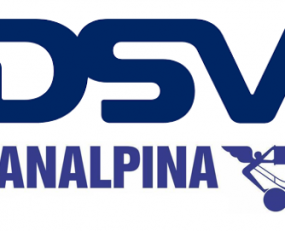
Published on Friday (7/2), the first ‘full-year’ figures for the new DSV Panalpina, are limited by the new company only having effectively existed for the fourth quarter of 2019. Despite that, the new company said that in terms of its freight forwarding operation a “significant Panalpina impact” had been noticeable since August, so the results released on Friday may tell us a reasonable about the performance prospects of DSV Panalpina.
Overall, for the whole of 2019, the combination of the old and new companies saw a respectable gross profit increase of 5.7% to DKK23.7bn and an EBIT up 8.4% at DKK6.654bn. This performance was generally sustained in the fourth quarter, with rises of 4.4% and 9.9% for gross profit and EBIT (Earnings Before Interest and Tax) respectively.
DSV Panalpina said that most of the growth was due to the performance of the Air & Sea and Solutions business, which is interesting as Air & Sea is the forwarding business and particularly affected by the incorporation of Panalpina.
Here, sea forwarding was quite good, with gross profit up 7%. DSV Panalpina said that the underlying growth for the year in the ‘legacy’ DSV business was 6%, so presumably, growth at the Panalpina sea freight business was not strong. In air forwarding, growth of gross profit was 4.8% with DSV legacy business seeing a 2% fall over the year, suggesting that the old Panalpina did better here. However, the acquisition of Panalpina has led to a sharp dilution of profit margins, with operating margin falling to 6.6% in the fourth quarter, in comparison to the former DSV forwarding operation that had a margin of 11.1% in the same period. Essentially DSV, in turning itself into DSV Panalpina, has traded higher volumes for lower profitability. In total EBIT rose by 12.1% to DKK3.6bn for the full year.
The impact of the merger in the Solutions contract logistics business has been much less. The business did reasonably well with revenue up 1.9% but gross profit up 7.1%, suggesting improving underlying margins, however, heavy investment in IT depressed EBIT resulting in an increase of just 1.8%. DSV Panalpina said that 2019 was “year with focus on stabilisation and preparation for future growth”, which may explain the heavy investment, however, it could be that the contract logistics business simply has become more demanding of capital expenditure.
The road freight business suffered from the downturn in the automotive sector and generally low growth environment in Europe, leading to a 1% increase in revenue and a 0.2% increase in EBIT.
DSV Panalpina appears to be executing the merger with the familiar aggression of DSV, with half of Panalpina “onboarded” and integration costs and savings already said to be in balance. The real test will be if DSV Panalpina can return its freight forwarding operation to the higher margins seen at DSV whilst retaining the volumes delivered by Panalpina.
Source: Transport Intelligence
Author: Thomas Cullen